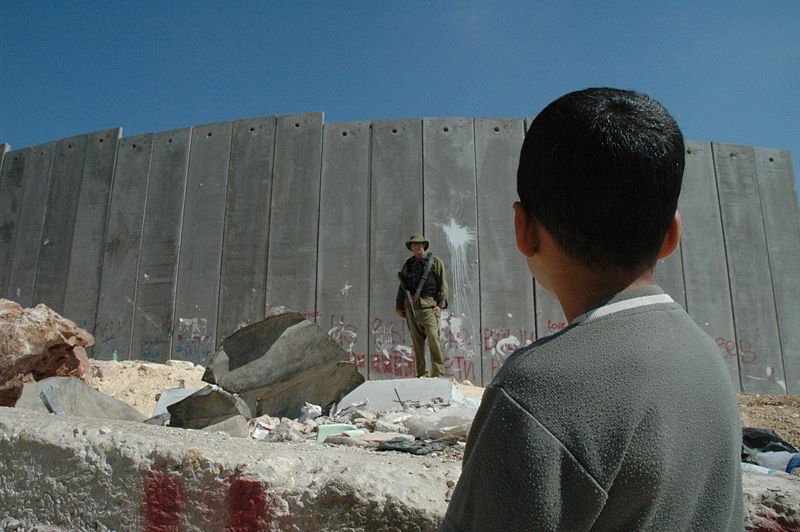On February 24, 2017, Human Rights Watch (HRW) reported that its officials had been denied visa entry into Israel. They plan to appeal this ban, and have been granted access into Israel with a tourist visa. Yet this puts Israel in the same league as North Korea, Sudan, Uzbekistan, Cuba and Venezuela, whose governments have blocked access or have little to no relations with the human rights organization.
A letter from the Israeli Ministry of Foreign Affairs denied Omar Shakir, a researcher for HRW, on the basis that the “organization’s public activities and reports have engaged in politics in the service of Palestinian propaganda, while falsely raising the banner of ‘human rights’…”
HRW actively, and legally, researches across all countries in the Middle East and North Africa. The group itself aims to accurately report on human rights abuses in countries around the world in order to hold governments accountable to their people. Since 1978, Human Rights Watch has been an essential resource for providing reliable reports on human rights abuses, even winning a Nobel Peace Prize for their International Campaign to Ban Landmines.
Having gained a prestigious background for human rights documentation, it has been customary for 90 countries around the world to allow such research to take place. Usually, each country’s report is produced by a researcher chosen based on geographic and thematic relevance. However, because Israelis are not allowed into Palestinian territory, foreign researchers are required.
Past HRW reports about Israel have discovered that the country has severely mistreated the Palestinian people. However, the Ministry of Foreign Affairs has been criticized for accusing HRW of being biased towards Palestine. Numerous HRW reports have also revealed that Palestine targets those expressing freedom of speech and uses physical abuse to intimidate their captures.
Why Israel has decided to first ban, and then provide a tourist visa to the human rights group, is still unexplained. Some have argued that this was the country’s reaction to the international backlash they have received over illegal settlement building in Palestine, making the ban seem like a defensive tactic.
Though Israel and Palestine have always had a contentious relationship, this settlement building has further strained possible solutions for peace. The United Nations Security Council Resolution 2334 claims that all Israeli settlement building on occupied Palestinian territory has no legal basis. Palestine is comprised of the West Bank, Gaza strip, and East Jerusalem, which 135 nations around the world recognize. However, in February 2017, the Israeli government put forward a new bill allowing the military or civil service to seize property on these territories. This was only one settlement bill out of four that were announced and supported by Benjamin Netanyahu’s government in less than two weeks at the beginning of 2017.
Israeli occupation in Palestine has consistently grown over the past 50 years. With these new bills, life is getting harder for many Palestinians as settlement building comes hand in hand with demolitions. To make room for these new settlements, Palestinian homes have been destroyed with little to no notice, disregarding the homelessness that the demolitions are creating. Majority of the new homeless Palestinians are children. Since the beginning of 2016, it has been reported that 29 Palestinian properties have been demolished – on average, per week, including schools. As many rely on the land for agriculture as a first source of income, which in turn means that many cannot leave. Yet the Israeli government stringently hands out building permits to Palestinians as well, putting many out of luck for a new home, and are even having the military use the lack of building permits as an excuse to justify the demolitions.
From rejecting the United Nations resolution to refusing Human Rights Watch entry, supporters of the settlements seem to be struggling with accepting criticisms from the international community. This has caused a large division within the Israeli parliament itself, as Benjamin Netanyahu’s right-wing Knesset refuses to accept Resolution 2334, while centrist and leftist parties believe the bills to be promoting theft.
Prime Minister Netanyahu has repeatedly stated that Israel must, and has the right to, defend itself. Though a Prime Minister has the duty of defending his or her country, it is hard to avoid the overwhelming footage of Palestinians being removed from their homes, lacking basic human rights, and dealing with thousands of casualties.
A Human Rights Watch report published on March 1 found that Israeli authorities have been using the Unlawful Combatants Law, enacted in 2002, to hold 536 Palestinians in administrative detention as of mid-January 2017. They are being held without charge or trial. Sarah Leah Whitson, Middle East director for HRW, said that “…[the law] provides the Israeli authorities with expansive detention power to use whenever they choose.” This is why reports from organizations like Human Rights Watch become imperative to revealing the different perspectives of a country’s administration. Without them, it will be hard to continue the journey of peace-building that the world craves for this prominent Middle Eastern conflict.
Photo: “Boy and soldier in front of Israeli wall” (2004), by Justin McIntosh via Wikimedia Commons. Licensed under CC 2.0.
Disclaimer: Any views or opinions expressed in articles are solely those of the authors and do not necessarily represent the views of the NATO Association of Canada.




